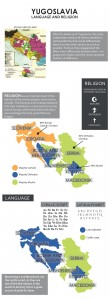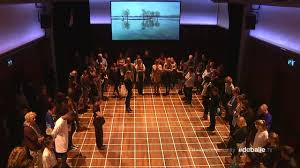![]() Last week we met with Creative Court. We showed them the work we’ve done during our first weeks at MediaLab. Based on the papers we wrote, we created a historical timeline and an infographic. If we want to create a website or an app, these two materials can be used as a great starting point. They contain some basic information about the region, presented in a very accessible way.
Last week we met with Creative Court. We showed them the work we’ve done during our first weeks at MediaLab. Based on the papers we wrote, we created a historical timeline and an infographic. If we want to create a website or an app, these two materials can be used as a great starting point. They contain some basic information about the region, presented in a very accessible way.
Our partners from Creative Court were very happy with the work we’ve done, and were very willing to get us in touch with some of their contacts. They have a large network of inspiring people who can help us with our project. One of those could be philosopher Nenad Fisher. A couple of weeks ago we attended Rooms of Humanity where he gave a great lecture on the use of propaganda during the Yugoslav Wars. Even when you know that media are used to fabricate narratives, it can be quite astonishing to see how easily that can be done.
As mentioned in the first post, Rooms of Humanity is an event co-organized by Creative Court. That event made clear that our partners aren’t just interested in creating thoughtful art. They want their projects to be stirring, and maybe even slightly provocative. They have to open up a discussion, even if that may sometimes be a bit uncomfortable. They re-emphasized this during the meeting and showed us an example of how that can be achieved through very simple means.
Creative Court has developed a rather simple interactive game. The participants are asked a series of reflexive questions such as ‘Do you believe in God?’, ‘Does the nation you were born in still exist?’, ‘Do you consider yourself part of a minority?’, ‘Do you believe that a totalitarian, fascist regime can get to power in your country?’ Each time you know the answer to a question you have to take one step in whatever direction you want, although many people try to develop a system. For example for ‘yes’ you take a step forward, and for ‘no’ you take a step backward. Your system can easily be disrupted though, as some questions are open-ended. Furthermore the other participants can get in your way, disabling you to make a step in the preferred direction.
This game is very effective for a couple of reasons. First of all, it of course allows you to reflect on your own values and ideals. Even more interestingly though, it makes you think about your co-participants. While deciding on your own answers, you cannot help but try to decode the movements of the other people, to find out what they are thinking. At the same time you are aware that the others want to find out the same thing about you, so you become quite conscious of your answers and your movements. All these questions touch on issues of (self-) identity. What if someone thinks that you said you believe in God, when the opposite is true? They might have a completely different image of you!
“The interactivity afforded by games makes them a much more effective medium for empathy than non-interactive books and movies”. This is a very questionable statement by game designer Lucas Pope, but his game Papers, Please makes a good case for it. Papers, Please takes place in the fictional communist state of Arstotzka, where you have to work as an immigration officer at the border. When playing the game, you have to determine whether to admit, deny or detain immigrants trying to enter Arstotzka. In doing so the game creates great empathy for both the refugees and the immigration officers, who do not have much agency in deciding who gets to enter Arstotzka. It is clear that Pope has thought out all the implications of his game, as he explains very well in this interview.
We found the two games we discussed here very thought provoking. Consequently we decided that we want to develop a (prototype for a) reflective game in the next three weeks. We don’t yet know the details of this game, but it will be a combination of Cards Against Humanity and ‘Would you rather?’ Furthermore in the coming weeks we plan to conduct interviews with our users, to learn more about their wishes, needs and desires. This will result in a booklet, which we will present in a later post.







